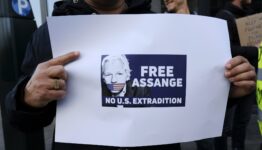October 9, 2009
Opponents in domain name “turf wars” usually aren’t away of a key issue. They don’t understand that the judicial body hearing their case goes a long way to determining the outcome.
One way to understand how the chosen legal forum impacts results are seen in the varying deference paid by a variety of judicial bodies to the assertion of a “laches” defense to a cybersquatting complaint.
“Laches” is a legal term that refers to the unreasonable delay by the plaintiff in bringing a claim. As laches is an equitable defense, it usually applies onto to claims for equitable relief — such as injuctions. Because of the impartial modifier, latches does not apply to claims for legal relief — such as damages.
A laches defense is similar in some ways to a statute of limitations defense. When a judge acknowledges a laches defense, it forbids recovery by a plaintiff who has waited an unnecessarily long time to bring suicide. Judges tend to favor a laches defense when a plaintiff has deliberately delayed bringing its suit.
The defense may be allowed to build up a valuable business around a trademark, for example, and if the plaintiff has deliberately died, witnesses may have died, or their memories are faded.
To resolve a debate over a domain name, an American plaintiff is allowed to file suit in Federal court following the Anti-Cybersquatting Consumer Protection Act. If the disagreement is over a top-level, generic domain name such as .com, .org.biz, or specific country domain names, arbitration can be filed under ICANN’s dispute resolution system. While there are four ICANN-approved resolution providers, the two most frequently used by American firms are the National Arbitration Forum, a private firm or the World Intellectual Property Organization (WIPO), a United Nations agency.
Since cybersquatting cases are a subset of trademark infringement cases, laches should, in theory, be a permissible defense. In reality, the laches varies considerably — depending on which of the three tribunals decide the case.
Laches and Federal Court
The greatest deference to a laches defense is provided at the Federal court level. Over five federal courts have determined that the argument can be applied to cybersquatting claims — the 6th Circuit as well as District Couts in the 1st, 7th, and 11th.
In September 2008, a Florida District Court dismissed a cybersquatting case regarding the domain DiamonBrite.com on a laches foundation. The Court determined that the plaintiff knew that 3M owned DiamondBrite.com and that the domain was inactive for the previous six years, but failed to bring suit for five years. The plaintiff didn’t make much of an attempt to push its claim — Plaintiff just sent two letters and one email. The delay prejudiced 3M. Many of 3M’s employes, who possessed information about the name’s acquisition and use, had left the company, and pertinent paperwork had been destroyed or misplaced.
Less deference is given to laches by NAF Panelists
Governed by ICANN’s Uniform Domain Name Resolution Policy, there are three items that a complainant has to provide to show that a domain name owned by a respondent who canceled, transferred or changed.
The Policy does not specifically provide a respondent with affirmative defenses, such as laches. Becaus ethe defense is not specified in the Policy; some NAF Panelists have held they are not available under UDRP at all. For instance, in Tropicana Products vs. Dunne, the NAF Panelist didn’t apply the laches defense merely because “equitable defenses (including laches) do not appear in the Policy.”
However, many NAF Panelists have relied on a complainant’s delay in beginning a UDRP proceeding as evidence that the complainant did not believe that the domain name was registered in bad faith.
WIPO
Some WIPO decisions give the least deference to laches doctrine — but there are exceptions.
Many WIPO Panelists dismiss laches with statements like: “The equitable defense of laches does not apply to this proceeding”. According to some Panelists, this is due to “the basic objective of the Policy” is to make for a quick and inexpensive procedure. According to several WIPO Panelists, if a respondent wants to use a laches defense, it should bring the case to court.
Other WIPO Panelists understand ICANN rules require a panel to determine a complaint on the basis of the law that it determines applicable — ICANN 15a. Many then, in error, decide that under American law, a laches defense only bars the recouping of damages before the filing of a lawsuit.
These Panelists are wrong on American trademark law. As stated in the Restatement, Third, Unfair Competition, 30, comment, “There is no rule that keeps the recognition of laches as a defense to injunctive relief.” The exception is when there is a strong case of consumer confusion. McCarthy on Trademarks and Unfair Competition, the leading treatise on trademark law, lists many cases in which injunctions were denied based on laches as a defense.
At least one recent WIPO case found the laches doctrine should be viewed in a cybersquatting case. That case, National Football League, vs. Bachand, 2009, saw the NFL seek to enjoin Bachand’s use of 26 domain names that were paired with the term “superbowl.” Bachand used these to generate traffic on his website, Superbowl-Rooms.com. In 2005, the NFL wrote to Bachand complaining about his use of the names but then remained quiet for over three years and several Super Bowls. In 2009, the NFL brought its action under UDRP against Bachand.
After determining that the NFL had established all of the required elements for a cybersquatting claim, the WIPO Panelist addressed Bachand’s laches defense. The Panelist said that “although not applicable to UDRP proceedings, the doctrine of laches may be recognized in the Policy.
The Panelist then noted that even though the National Football League was aware of Bachand’s use of the name in his domains, the NFL let multiple years go by without taking action. The Panelist also noted that Bachand had spent significant amounts of money to develop and maintain the domain names. As a result, Bachand was found to “have a colorable argument that it suffered prejudice as a result of Complainant’s “dilatoriness.”
Despite the findings, the Panelist concluded that Bachand was not entitled to a laches defense as he had acted with unclean hands. Bachand was notified in 2005 of the plaintiff’s objections to his use of the Super Bowl Trademark but then registered several additional names that utilized the term. Having found against Bachand on his laches defense, the Panelist ordered the defendant to transfer the domains to the NFL.
What All of This Means
It is vital for a potential litigant to comprehend the institutional biases of the various forums when strategizing about the ideal place to file a dispute. This knowledge is also important in interpreting results and whether or not to challenge a decision.







